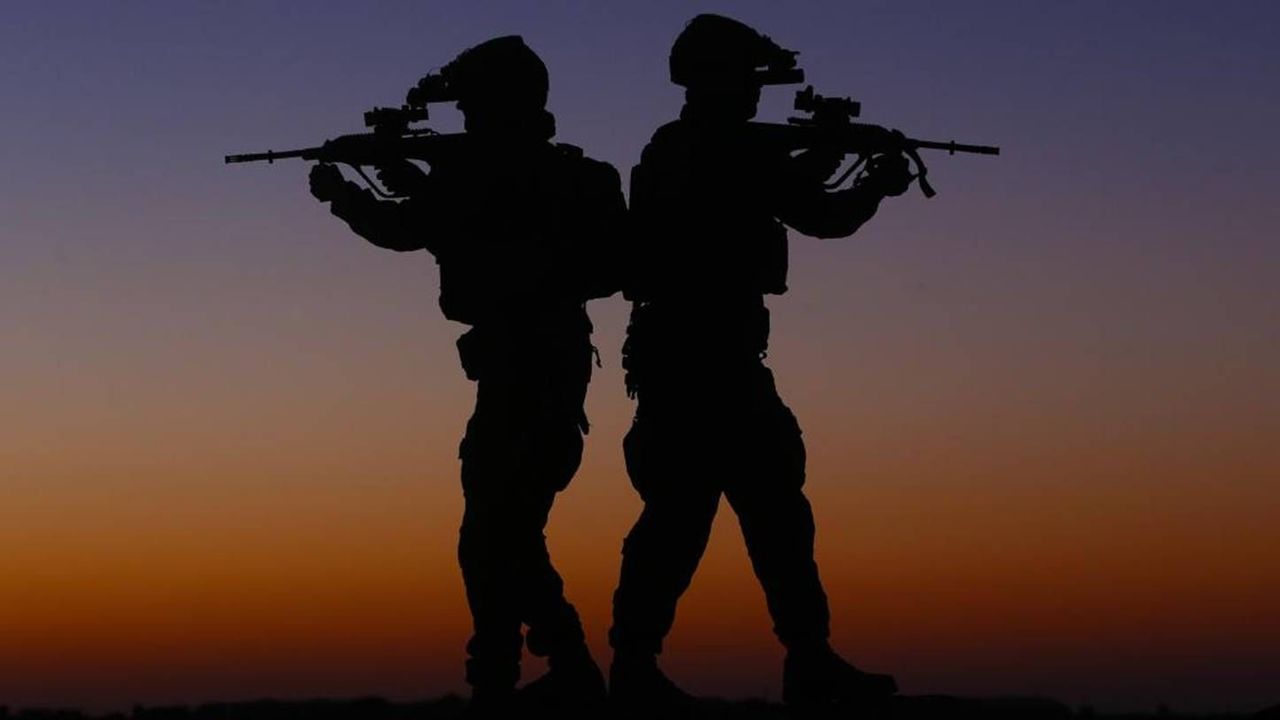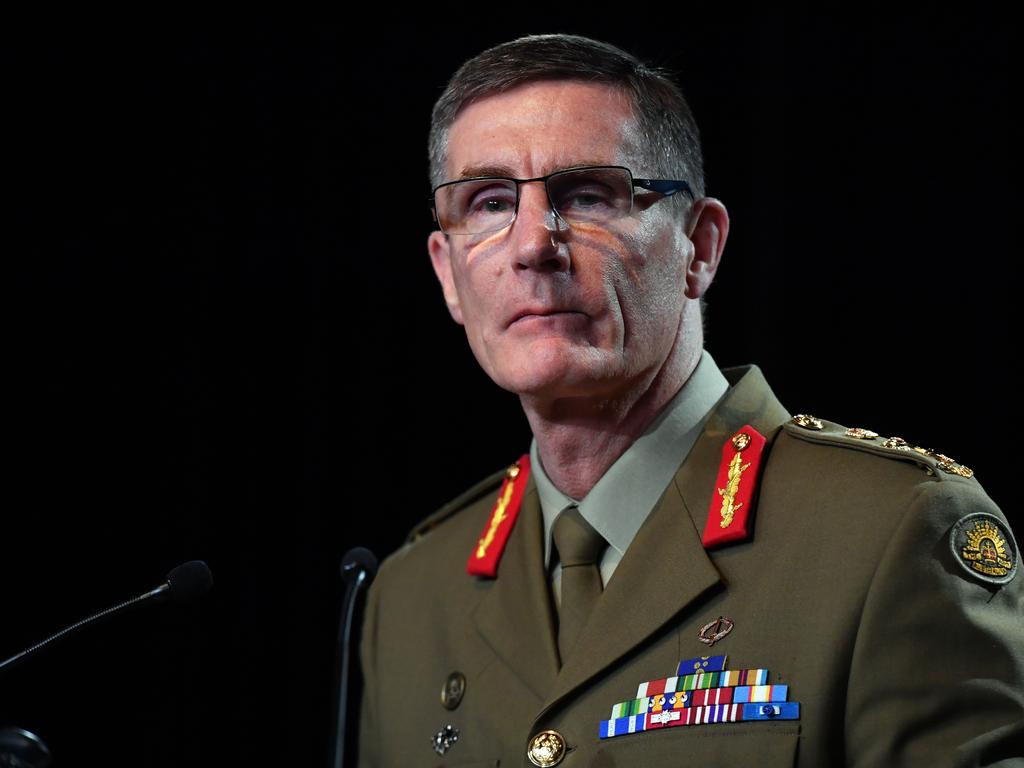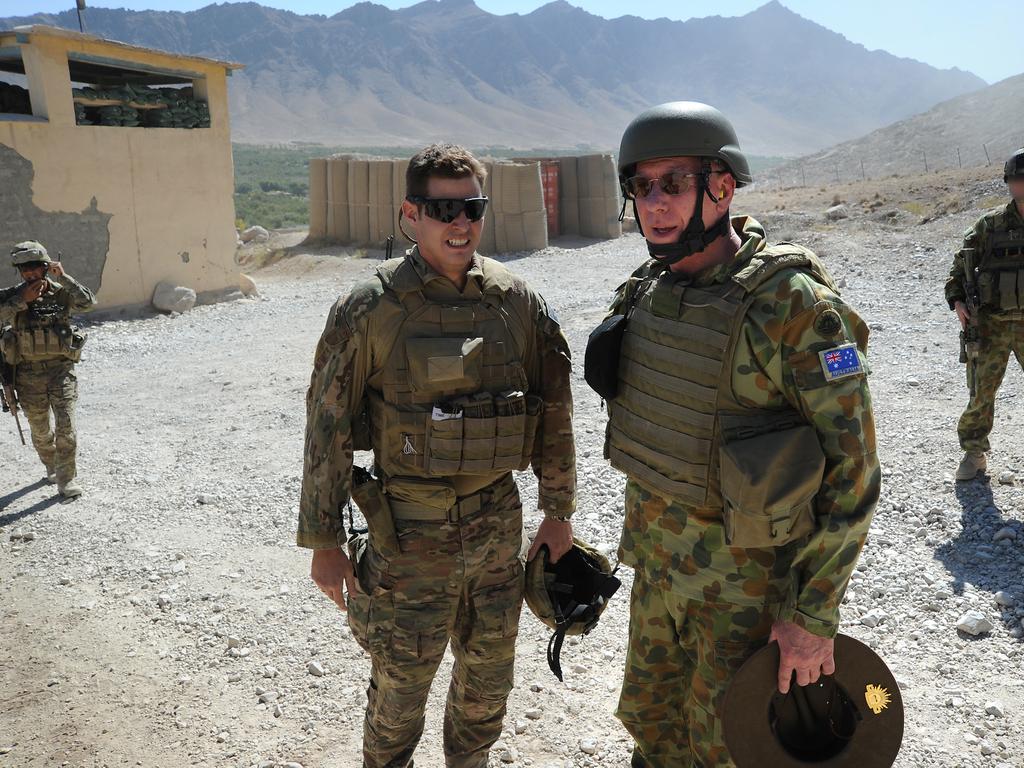
It has its origin in the wretchedly ill-advised way Australia goes to war.
The Howard government, for all its strengths, went to war in Afghanistan and Iraq and decided that the only people who would seek out direct combat were the special forces.
We didn’t want to risk casualties, so instead we have apparently encompassed atrocities, and risked the moral support of the Australian people for the ADF at a time when this has never been more important.

This is a moment of danger for the nation.
There is a reason so many recent governors-general have been soldiers. The military is almost the last great institution left that the people love and trust.
The overwhelming majority of Australians who served in Afghanistan, including in the SAS and the Commandos, did so honourably.
Yet the law must take its course in the case of these alleged unspeakable crimes.
But we should focus first on the original sin of our irresponsible approach to war.
It is almost always a mistake to go to war without having a specific strategic military outcome as the objective.
But we had no strategic military objective in Afghanistan. Our objective was simply to show the Americans we were good allies. That’s always our objective in everything we do militarily. It’s not enough, especially for a long-term, deadly mission.
It leads us to terrible mistakes in the way we wage war. We typically deploy high-quality, niche forces in tiny numbers. They perform brilliantly and we deploy them again and again.
We never deployed in Afghanistan a credible, balanced Australian force with a clear objective, such as taking control of a province. We used the special forces for most army combat operations, very often for the purpose of engaging and killing the enemy. We were scared to use the regular army for this. We thought that would produce force-on-force conflicts which we would win, but at the cost of casualties.
The special forces always volunteer for any job. So they did it instead, again and again and again.

Ultimately, undertaking too many missions desensitises some soldiers and can lead some to lose their moral judgment. It also isolates them from the rest of the army, who are aware that only the special forces are considered competent to undertake direct, aggressive, combat missions.
The special forces, over-stretched, over-deployed, over-used, unique in their mission in all Australian deployments, eventually developed a distinctive culture which had gravely deficient elements.
At first the SAS performed magnificently. US Afghanistan commander Lieutenant-General Frank Hagenbeck in 2004 said: “The Australian SAS displayed the kinds of things that make them the elite, in my view, of small-unit infantrymen throughout the world.” The US National Security Strategy of September 2002 described them as “some of the world’s finest forces”.
Jim Mattis, later the US defence secretary, declared: “We marines would happily storm hell itself with your troops on our right flank.”
Australian governments purred with satisfaction at such praise.
How did it all go so wrong? Over-use of the special forces, over-dependence on the special forces, isolation from the rest of the army, isolation from the ethos of the broad ADF, and of the Australian nation more broadly, their own success leading to a culture that they were too special altogether.

It is a pity that Major-General Paul Brereton, who overall has done a fine job, used the term “warrior” in a disparaging way.
Soldiers must indeed be warriors or they are no use at all.
Of course, as warriors, as soldiers, they remain subject to the law of war, their rules of engagement and the basic laws of human morality.
In the serious and necessary reforms which are already under way in the special forces and in the army, we should not disband the special forces, or remove from them the features which historically have made them effective, as they have been for decades now.
This is a moment of distress for the nation.
The military plays a unique role in the way we conceive of our nation, from Gallipoli to the Kokoda Track and beyond. The War Memorial in Canberra is the only space modern Australia has created which almost everyone, whatever their general view of politics and society, regards as sacred.
Our soldiers were always seen as embodying our national values — egalitarian, open, practical, effective, compassionate, friendly when not under fire, deadly in combat, getting the job done with the minimum of hierarchical rigmarole and ossified deference.
This is now at some risk as a result of these shocking revelations.
We must prevent anything like these alleged war crimes ever happening again, and yet our military must remain war fighters, and we must yet keep them in our hearts.








This day of grievous shame and regret, not only for the Australian Defence Force but for the whole Australian nation, has its origin not in culture but in policy.